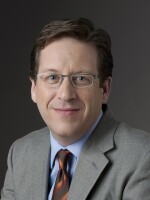The Franciscan University of Steubenville in Ohio faces questions about its accreditation because of a course description that links homosexuality with crimes like murder, rape and robbery.
The university's social work program offers the course, called SWK 314 Deviant Behavior. The course description reads: "The behaviors that are primarily examined are murder, rape, robbery, prostitution, homosexuality, mental illness and drug use."
Members of a Franciscan University gay and lesbian alumni group on Facebook discovered the course description and have asked the school to change it.
"As a lesbian and as a psychological professional, I found a couple of things offensive," says Elizabeth Vermilyea, who graduated from Franciscan University in 1991 with a psychology degree. Today she's working on a doctorate and consults with mental health organizations. She objects to including both mental health and homosexuality in that list.
"The state of the art in science on homosexuality is not that it's deviant," says Vermilyea. "The DSM — Diagnostic and Statistical Manual of Mental Disorders — has removed it ... as an illness."
Franciscan University sits on a hill in Steubenville, Ohio, nearly 40 miles west of Pittsburgh. With about 2,600 mostly undergraduate students, the university is proud of its rigorous academics and its conservative reputation.
In a written statement to NPR, the school says, "Franciscan University follows Catholic Church teaching in regard to homosexuality and treats homosexual persons with 'respect, compassion, and sensitivity' (Catechism of the Catholic Church, No. 2358) while holding homosexual acts as 'intrinsically disordered.' "
The university says the term "deviant" is used in the sociological sense, to mean "different from the norm." And it says the course "covers a wide range of topics including crime, alcoholism, heterosexual deviance and homosexuality."
But gay and lesbian alumni are not satisfied with that explanation.
"What if you're a gay student at Franciscan University? How are you going to feel if you're sitting in that class and they're putting you in the same category as murderers?" asks Gregory Gronbacher, who graduated from Franciscan University in 1990.
Gronbacher and Vermilyea contacted school officials, trying to get the course description changed. The university's attorney responded instead with an email warning them not to use the university's name or logo in their activities.
Franciscan University now faces questions from the group that accredits its social work program.
"The fact that homosexuality was identified in the course description as a deviant behavior raises a flag," says Stephen Holloway, director of the office of accreditation at the Council on Social Work Education.
Holloway says there is a diversity requirement that includes sexual orientation in his organization's accrediting standards.
"Understanding diversity and difference and their dynamics in society is critical for social workers to be effective in working with diverse populations," explains Holloway.
The CSWE has accredited Franciscan University since 2001, and there is no history of problems.
A spokeswoman for Franciscan University says the school is reviewing the course description to determine whether it needs to be changed.
Copyright 2021 NPR. To see more, visit https://www.npr.org.




